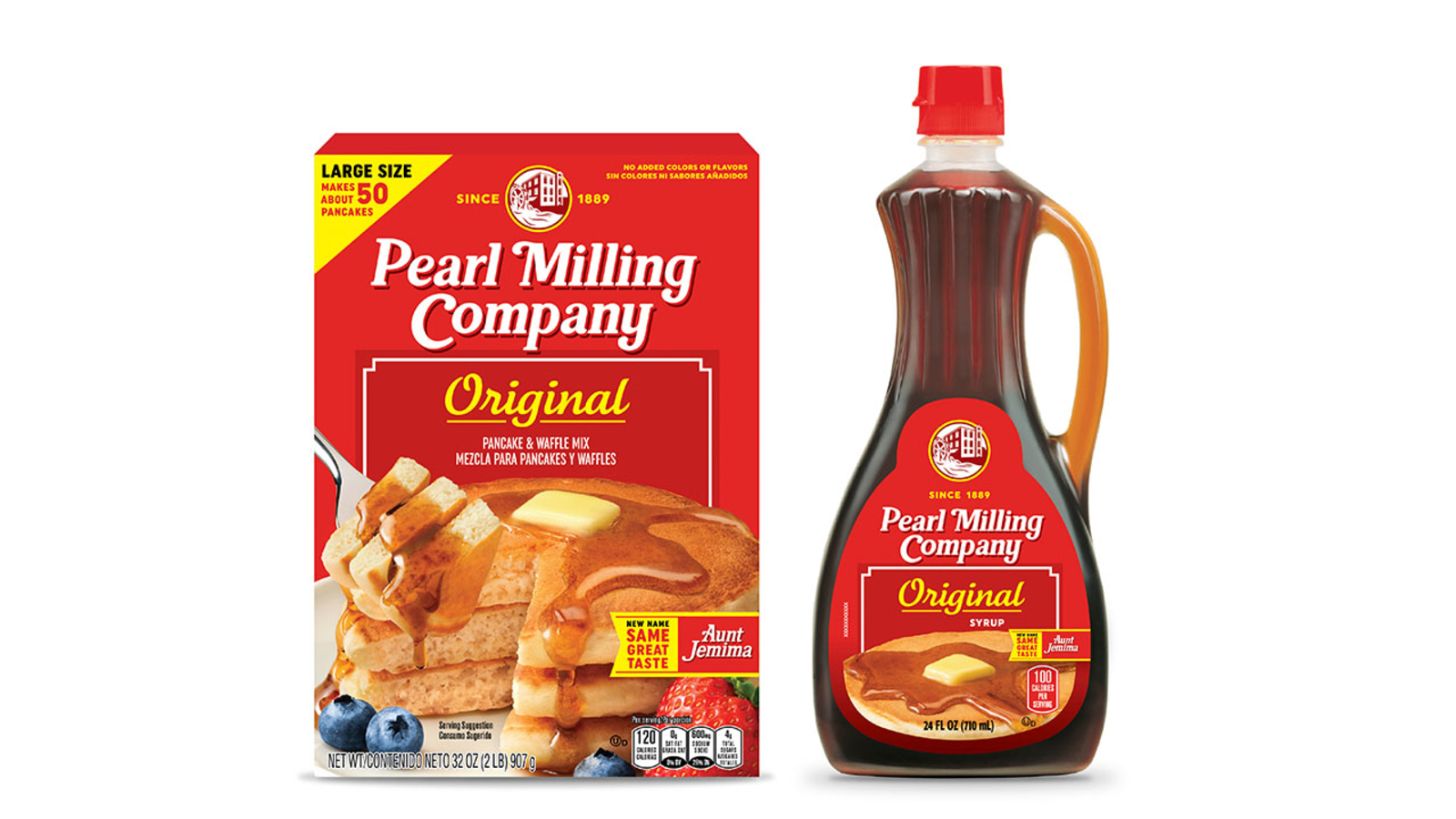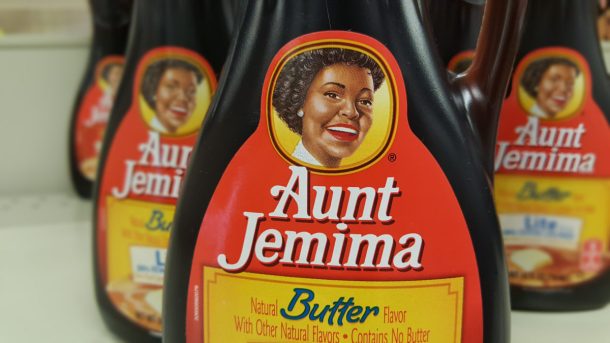The Aunt Jemima brand was originally founded in 1889 and became a staple in everyone’s morning breakfast routine for the next 130+ years before its sudden downfall in the summer of 2020 – which resulted in a name and logo change as the company started a new chapter as the Pearl Milling Company.
The change was spurred by a rise in civil unrest following the death of George Floyd, a 46-year-old African American who was murdered by a police officer in Minnesota on May 25, 2020. His death made national headlines and was used as an example of police brutality in the Black Lives Matter movement.
In a statement at the time, the Aunt Jemima brand wrote that it hoped to ‘make progress toward racial equality’ with the name and logo change. Their decision spurred a string of similar decisions made by other brands that had logos or names based on a racial stereotype, including Mrs. Buttersworth, for example.
In June 2020, a great-grandson of one of the former Aunt Jemima characters blasted the brand over the name change – calling it an ‘injustice for me and my family.’ He expressed his disapproval of companies like Aunt Jemima profiting off images of slavery without any of that money going back to black community.
Online critics slam Aunt Jemima's new name Pearl Milling Company https://t.co/mxfA75TlRH pic.twitter.com/vlI9xMLdD4
— New York Post (@nypost) February 10, 2021
“This is an injustice for me and my family. This is part of my history, sir,” Larnell Evans Sr. explained to the Patch. “The racism they talk about, using images from slavery, that comes from the other side — white people. This company profits off images of our slavery.”
“And their answer is to erase my great-grandmother’s history – a black female. It hurts,” he said. “This woman served all those people, and it was after slavery. She worked as Aunt Jemima. That was her job. How do you think I feel as a black man sitting here telling you about my family history they’re trying to erase?”
His great-grandmother was Anna Short Harrington, an African American who grew up on a plantation and was eventually enslaved by a white family in 1927. Harrington worked as a cook at the Kappa Sigma fraternity house in Syracuse before being approached by Quaker Oats to become their new Aunt Jemima.
However, Harrington wasn’t the first Aunt Jemima, although her great grandson claimed that it was her recipe Quaker Oats used.
Do you know Nancy Green…Aunt Jemima? She knew the Aunt Jemima was stereotypical and insulting but understood the power of the money she earned and used it to help others. pic.twitter.com/qeASeqE0Tu
— Maurice W (@iamMauriceW) March 14, 2023
For a little context here, the Pearl Milling Company brand created the ‘Aunt Jemima’ character in 1893 and hired an enslaved woman by the name of Nancy Green to portray the character. She debuted at the 1893 Chicago World’s Fair and continued to embody the character until her death three decades later.
When Did Aunt Jemima Officially Change Their Name?
In February 2021, the Aunt Jemima brand officially changed their name to Pearl Milling Company. “We are starting a new day with Pearl Milling Company. A new day rooted in the brand’s historic beginnings and its mission to create moments that matter at the breakfast table,” PepsiCo wrote at the time.

A few months after announcing the change, the new brand officially launched in June 2021 and has kept its name ever since. While the packaging of the product looks similar with the red, white, and yellow color scheme, the logo now features a 19th century watermill – opposed to a photograph of Aunt Jemima.
As for Larnell Evans Sr. – the great-grandson of Anna Short Harrington, the third woman to portray Aunt Jemima – he hopes his great-grandmother’s story and legacy doesn’t get swept under the rug, which is what he feels is happening with the new name and logo. He doesn’t want Quaker Oats to get away with it.
She worked for that Quaker Oats for 20 years. She traveled all the way around the United States and Canada making pancakes as Aunt Jemima for them.”
Harrington portrayed the ‘Aunt Jemima’ character from 1935 to 1954 after she was discovered by Quaker Oaks at the New York State Fair in 1935. Searching for a long-term replacement to Nancy Green, the brand found what they were looking for in Harrington – who traveled the country promoting the brand.



